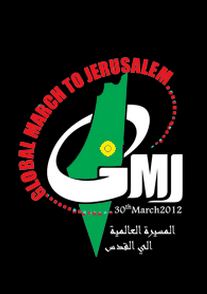Category: Press Releases
-
Messages of support to Mustafa Tamimi’s family
1 February 2012 | Life on Bir Zeit Campus Martyrs are not numbers. It is essential for us and for supporters of the Palestinian cause to remember the stories behind the names and numbers. For this reason, we offering this space as a platform where your voices will be heard regarding the first martyr the…
-
Stop the Jewish National Fund greenwashing ‘Green Sunday’ February 5, 2012
27 January 2012 | Stop the JNF Campaign The Jewish National Fund has designated Sunday 5th February as ‘Green Sunday’, when it encourages people to donate money to ‘plant trees in Israel’. The JNF claims to have environmental objectives. Don’t be taken in. The JNF’s tree planting is a cover for ethnic cleansing. The JNF…
-
A call from Palestinians in Palestine to join the Global March to Jerusalem
29 January 2012 | Global March to Jerusalem Join us as we intensify our struggle against forced exile and the system of Israeli apartheid on Land Day 2012. We Palestinians have been ethnically cleansed and uprooted from our lands starting in the 1948 Nakba (Catastrophe) which resulted in the creation of the millions of…


